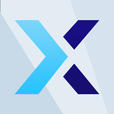Who Owns Moomoo Trading? A Practical Look at Ownership, Tech, and the Road Ahead
If you’re scrolling through Moomoo’s charts at 6 a.m. and wondering who holds the reins, you’re not alone. The straightforward answer is that Moomoo is a brand under Futu Holdings Limited, with its U.S. operations run by Moomoo Financial, Inc. under that umbrella. In other words, it’s a centralized broker-dealer ecosystem owned by a listed fintech company, not a pure decentralized project. That reality shapes how you trade, what protections are in place, and where the platform will head as markets and technology evolve.
Ownership and governance on the surface feel simple, but the implications ripple through every trade. Futu, a publicly traded firm, owns Moomoo as part of its global expansion. The day-to-day decisions—what features to roll out, how to price commissions, how to align with U.S. and international regulators—happen through a traditional corporate structure. Traders get the benefits of scale, regulatory compliance, and a polished user experience, but the control remains centralized in the hands of the parent company and its board.
Platform and asset coverage stand out as a core strength. Moomoo delivers access to multiple asset classes in one app: forex, stocks, crypto, indices, options, and commodities. In practice, that means you can switch from a U.S. equity watchlist to a foreign exchange quote or a commodity chart without leaving the platform. The charting tools and Level II-like data help you spot trends, while features like paper trading and real-time alerts support learning and discipline. In everyday life, that translates to managing a diversified watchlist during a commute or a quick analysis break between meetings.
Reliability and security go beyond pretty dashboards. Expect robust account protection, two-factor authentication, and encrypted data paths. Still, no system is immune to risks—market volatility, phishing attempts, or misjudged leverage can bite. Practical habits matter: enable all available security features, keep devices clean, and use position sizing that matches your risk tolerance. When you’re managing margins or using advanced orders, a disciplined routine becomes as important as the platform’s power.
Leverage and risk management deserve real attention. Moomoo offers margin in line with typical broker-dealer practice, so tread carefully in volatile assets or leveraged plays. My rule of thumb in the real world is simple: start small, diversify across a few asset classes, and use stop losses or risk controls to prevent a single swing from wiping out months of work. Use a balanced mix—perhaps a core stock or ETF position, small forex exposure for macro context, and a measured slice of crypto exposure if you’re exploring newer markets. In short, build an evidence-based plan rather than chasing big bets.
Web3 and DeFi provide context for the broader market story. Today’s Moomoo sits in a centralized framework, which offers familiarity, instant settlement, and regulatory clarity. The DeFi movement promises custody-by-cryptography and on-chain settlement, but it also raises challenges—security, liquidity, and complex interoperability. For traders, the takeaway is not a rejection of DeFi, but a recognition that today’s tools—bridges between CeFi and DeFi, regulated custody, and audited liquidity pools—can coexist with traditional platforms while we experiment with smart contracts and tokenized assets.
Future trends point to smarter, AI-assisted trading and smarter contract-driven flows. Expect smarter chart analysis, personalized risk alerts, and automated strategies that respect your risk budget. Smart contracts could enable more transparent, rules-based execution, while AI may help filter noise, optimize leverage, and suggest hedges. For now, Moomoo’s blend of broad asset access, strong tooling, and regulatory backing offers a reliable springboard as the industry tests new tech.
Moomoo—owned by Futu, powered for traders who want clarity, control, and a doorway to multiple markets. In a world leaning toward decentralized finance, this platform stands as a bridge: familiar, regulated, and ready to adapt as smart contracts and AI-driven trading reshape the way we invest. If you’re building a trading routine, consider this: ownership is centralized today, but the tools and the vision are geared toward empowering your next move.




